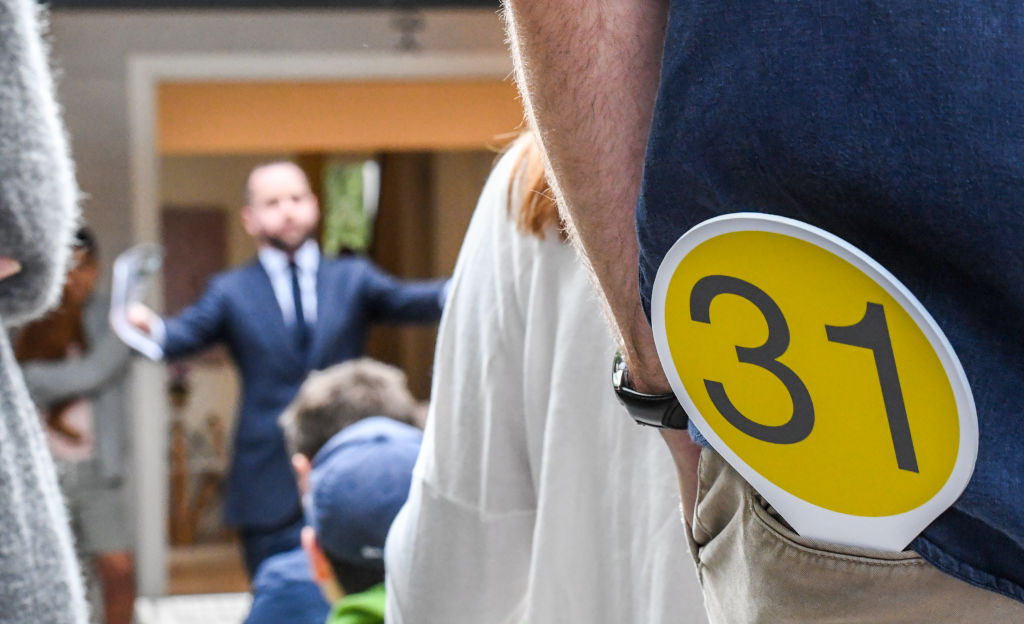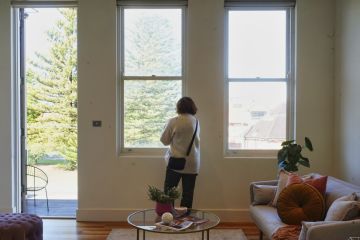Your Domain: How to start effectively saving for your first home deposit
As house prices start to bounce back, saving for a deposit is no mean feat for home buyers entering the market for the first time. As seen on Your Domain, we take a look at how first-home buyers can more efficiently save for their deposit.
Distinguish between wants and needs
Director of 40 Forty Finance Will Unkles says saving for a deposit is as simple as weighing up income and expenditure. While income is often controlled by an employer, expenditure is where first-home buyers have the most control, and should be scrutinising.
“You’ve got to think about needs and wants, and what is a need – those things you can’t adjust – and what is a want – something that you could do an alternative to,” he said.
Mr Unkles sees holidays and eating out as two big “wants” that the current generation of first-home buyers are struggling with.
“Holidays is the big one that kills things. No longer is it a trip down to the local beach. Now it’s a trip to Europe for a two month jaunt. These things blow big holes in savings budgets but, they are choices.”
Pay off the right unsecured debts
Having a high credit limit is very dangerous, says Mr Unkles, and other unsecured debts should be nipped in the bud before saving for a deposit.
“Personal loans, car loans, things that are ticking over in the background, that are really going to restrict your ability to put money towards your own back pocket,” he said.
“So what I encourage people to do is really turn your focus to paying off those unsecured debts.”
But one type of debt many first-home buyers have is HECS or student loans from the government, which Mr Unkles says to leave to the side as you focus on your first-home.
“So you’ve got your education underway and it’s happening and now you’re working and it’s going to be paid off as your income rises over time. With that in mind, I don’t recommend you putting extra money towards it because it will take care of itself.”
Minimise your ongoing payments
Cancelling an unused gym membership or your Netflix account are quick fixes to accumulating extra cash in the long-run.
“So if you cancelled Netflix, that might save you another $150 a year. It’s not a great saving in terms of adding to your home deposit, but if you’ve got three or four of these things, plus a gym membership you’re not using, plus car insurance you haven’t reviewed, all these things in total you can make clear savings there if you just reviewed them a bit more,” said Mr Unkles.
But first-home buyers often forget that rent is their biggest weekly expenditure, and finding ways to cut it down will have the biggest impact on deposit saving. Mr Unkles acknowledges this can be tricky for many, but recommends moving into the “hotel of mum and dad”, increasing the size of your sharehouse, or moving outside the capital cities.
“Obviously the easy answer, if you’ve got the ability and the mental capacity to do so – move back in with your parents, right?”
“Short of that, it’s about potentially sharehousing. So if you’re living in a one bedroom [home] then it can be quite expensive. Maybe look to downgrade to a two bedroom with friends if you can. If it’s possible at all.”

Stretch your savings for security
Mr Unkles says his general rule of thumb from clients is to have a 10 per cent deposit saved, plus money to cover stamp duty costs. This provides security to first-home buyers in case the market backtracks in the after buying the home, placing buyers at higher risk of a negative equity position.
However, earlier this month, the Coalition Government passed new laws through Parliament to implement the First Home Loan Deposit Scheme, which will provide a guarantee allowing eligible first-home buyers on low and middle incomes to purchase a home with a deposit as little as 5 per cent.
While the scheme looks good on paper for first-home buyers, Mr Unkles says not to depend too heavily on it due to its limited availability.
“Once the scheme is around and we know exactly what it looks like, it might be a good option for some, but it’s always good to have that extra buffer.”
Lenders Mortgage Insurance is another cost first-home buyers should be aware of. It’s paid when you don’t have a complete deposit. Mr Unkles says this cost will depend on how close to a 20 per cent deposit you have saved up.
“It changes greatly whether you’re closer to a 20 per cent deposit, or further away from a 10 per cent deposit. But let’s say you’re in the middle of the 10 per cent deposit, the general rule of thumb I like clients to take into consideration will be about 2 per cent of the cost of the property.”
We recommend
States
Capital Cities
Capital Cities - Rentals
Popular Areas
Allhomes
More







